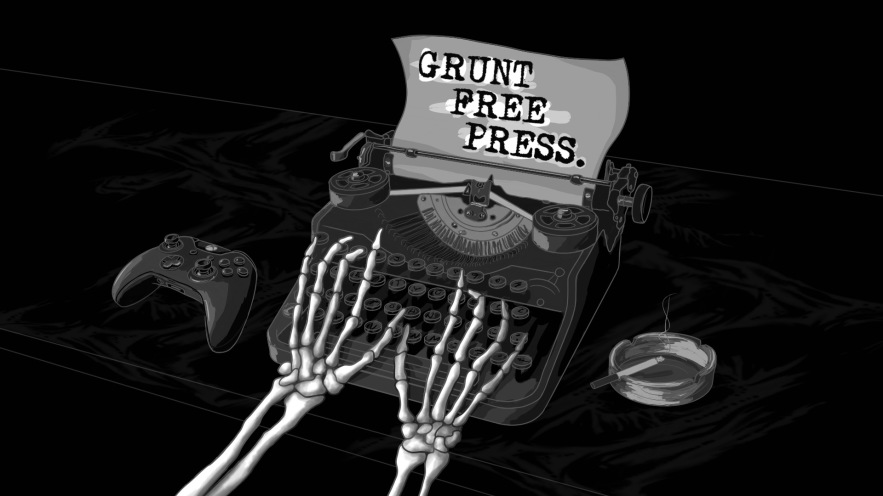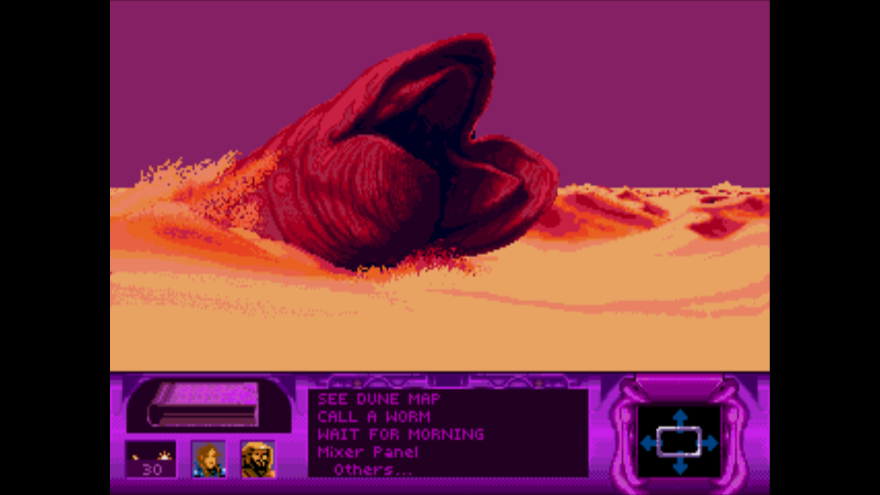Dune Review (Sega CD)
Dune is widely regarded as the first real time strategy game ever made. I'm sure this is somewhat debatable and I really don't feel like going down Google search rabbit holes of internet “facts” and theories and definitions, so let's at least give credit to the game's unique and abundant systems and litany of anomalies contained in the game both impressive now and especially so considering the time it was released. It's based on the classic science fiction novel by Frank Herbert, with some tenuous connections to the David Lynch film, specifically the likeness of Kyle Maclachlan and some of the artistic design. So it's a licensed game, based on a movie, and it tries to invent a new genre... sure recipe for disaster? No. The spice is life.
For anyone unfamiliar with the property: Dune revolves around the Atreides family arriving on the planet Arrakis, which is completely covered in sand and unremarkable save for it being the only place in the universe to produce spice- a drug used to navigate through space. The Atreides are tasked with mining enough of the resource to appease the Emperor, and this involves recruiting local tribesmen to do the manual labor while keeping them safe from attacks by native, gigantic spice worms that are attracted to the rhythmic droning of the mining machinery. Their rivals, the Harkonnens, are also present on the planet and they want nothing more than to see the entire Atreides clan wiped out. As the Duke's son, Paul, you must rally the local Fremen tribes and convince them to help you turn the tables, while you gain personal power through continued exposure to the spice and may or not fulfill the Fremen's ancient prophecy of an outsider arriving to set their people free and turn Dune into a lush jungle planet. If this sounds like narrative used to justify conventional RTS gameplay trappings... well, you've got that reversed.
The early stages of Dune are very story heavy and linearly focused. You have very few options available to you, mostly consisting of talking to your family and mentors who will direct you to your next destination. These can either be adding a member to your party and taking him or her to another character to initiate dialogue, or stepping out of your palace and taking to the skies in an ornithopter to visit with the local population, who in turn may direct you to other places to visit and people to talk to. Traveling is usually done by flying to locations across the planet-wide desert, where an FMV loop of dunes and rocky planes plays until you discover something noteworthy. The visuals and accompanying CD-quality soundtrack is at once rather bland (it is a desert planet) and a kind of soothing, zen-like experience as you watch the endless Dunes roll by from a first person perspective. These flights can also be the source of genuine stress and tension as the game is constantly on a ticking clock, and you have to plan for return trips to the palace to send the Emperor his weekly shipments of spice or else face the consequences.
Once the premise is set and you understand the basic loop of visiting sietches (local towns), recruiting Fremen, and outfitting them for mining efficiently while exploring for more of the population and story-specific locations, the rug is pulled out from under you. Goals get rather vague, the Harkonnens start attacking so you need to build an army for defense and attack, and the end game of covering the planet in vegetation and attacking the main Harkonnen palace is left up to you to figure out. This consists of strategy staples like micromanaging your troops' gear, moving spice harvesters to dense areas for maximum resource gathering, and guerrilla attacks on the weakest enemy camps to bide time while your forces improve. Most of this is controlled through the top down planet map, where troops and buildings are represented by what look like standard 16-bit sprites that stand in sharp contrast to the excellent, detailed character portraits seen in the rest of the game. It's not nice to look at, and while it's great that you eventually earn the power to contact anyone on the planet through this map without moving, you still end up traveling to random spots just to make the game clock move.
What I find really funny about Dune is just how representative it is of any and all real time strategy games made since. It seems like a genre that hasn't changed at the core for twenty plus years, for good or ill. There's still the trial and error battles here: send forces to attack, micromanage in the meantime, then if they fail you're pretty much screwed so you're forced to reload a save from thirty minutes prior and try other tactics. Pray to the sun that you don't fuck yourself with a bad save or plan to start the entire game over again... You start off underpowered and overwhelmed in comparison to the enemy, but after a few key battles the tables completely turn and the enemy is screwed. At that point you just have to go through the motions of gathering your army, moving your harvesters, planting your bulbs, back to the palace... rinse and repeat for way too long until there's no opposing force on the map. They're genre problems for sure, but considering Dune is the template and these problems haven't been definitively solved since... Dune was way the fuck ahead of it's time.
Despite the end game grind and the story taking a backseat toward the finale, Dune is surprisingly still fun to play today. The narrative is classic, the gameplay is literally genre-defining, and it strikes a nice balance between stressful and meditative. There's satisfying exploration, great music, and you get to ride a giant worm. See it through to the end to behold one of the most perplexing and hilarious “The End” title cards in existence.


